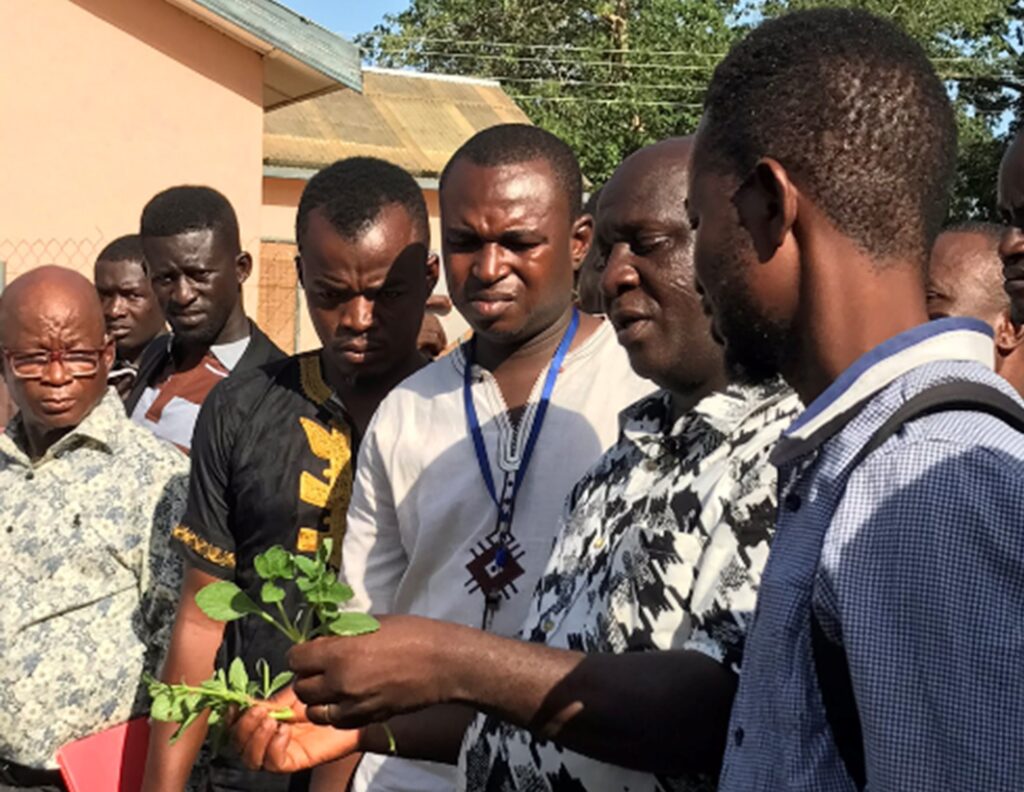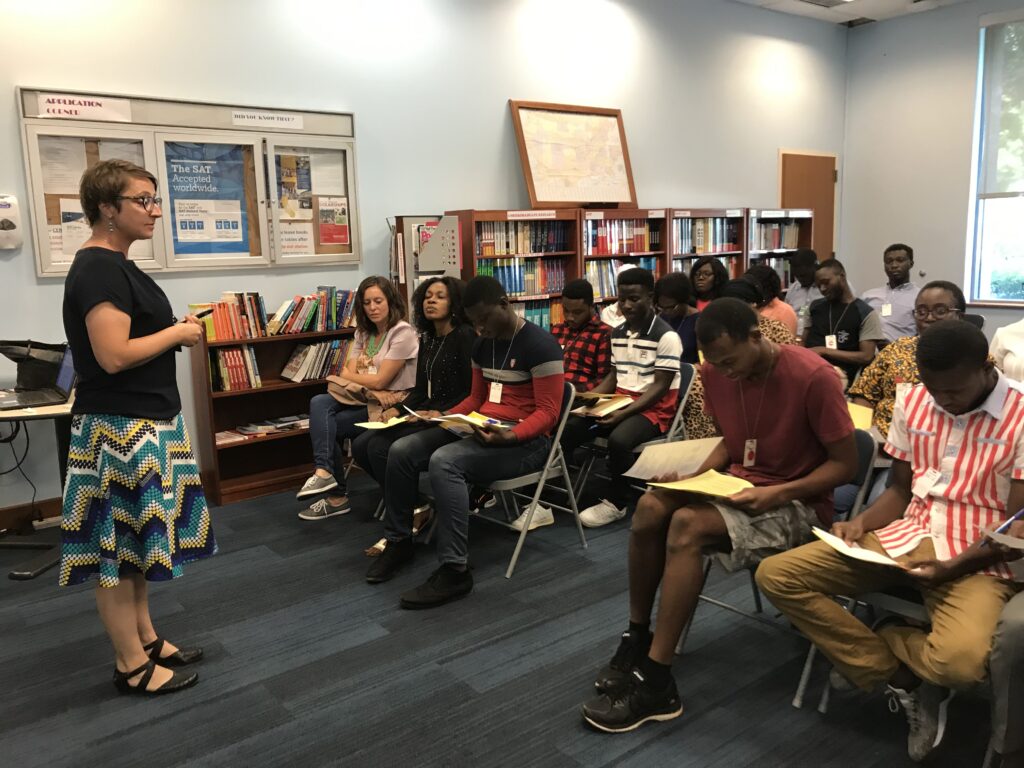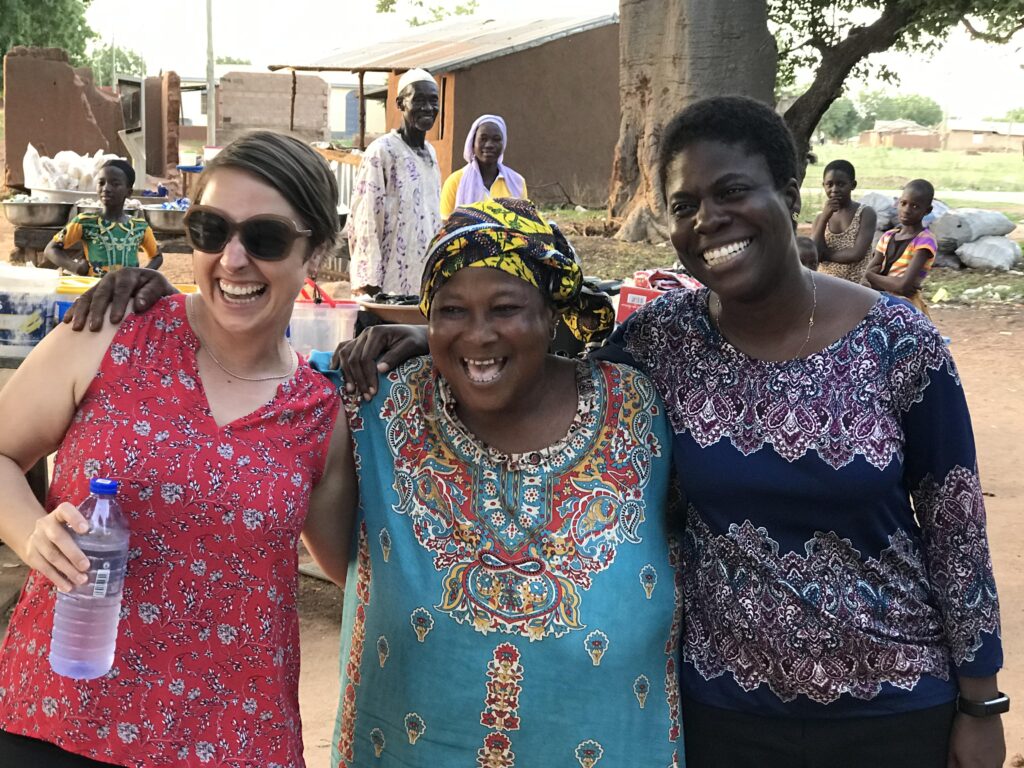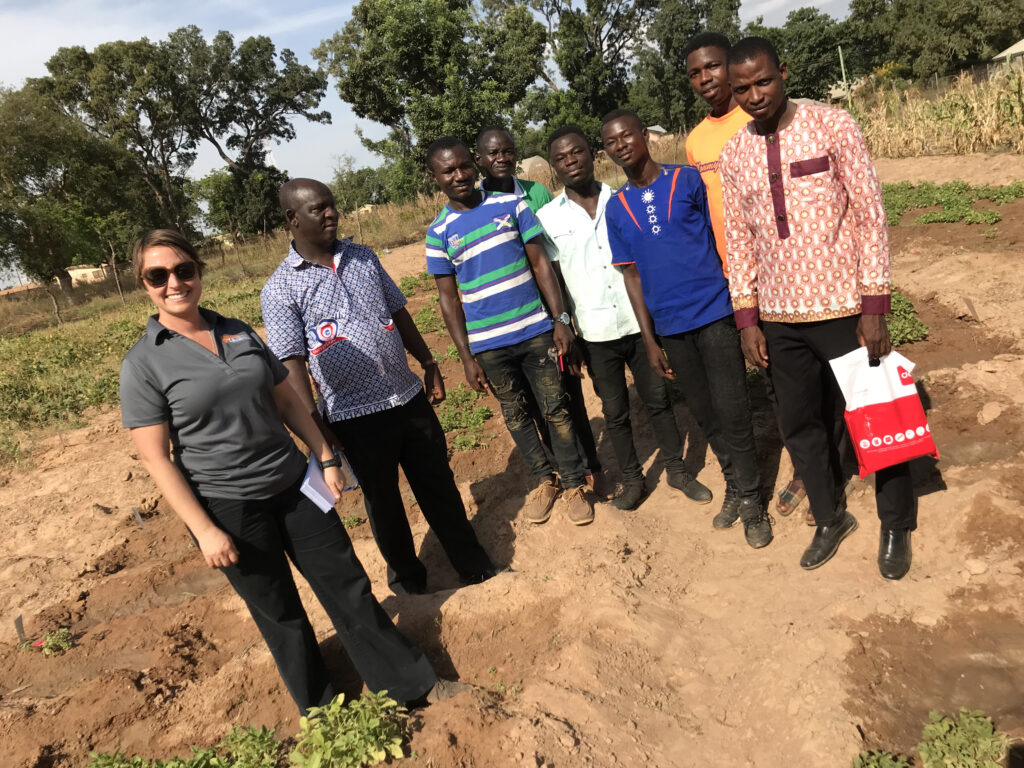Fulbrighters make an impact in their communities and fields by collaborating with researchers and practitioners across countries and cultures.
Studies by the National Science Foundation have found that women and minority populations have been underrepresented in STEM fields. Data from a recent UNESCO report indicates that only 35 percent of STEM students in higher education globally are women, and women make up fewer than 30 percent of the world’s researchers. The U.S. State Department’s Bureau of Educational and Cultural Affairs has made it a priority to support underrepresented students and faculty in STEM fields through academic exchange programs.
Recent graduates and current faculty members from this year’s Top Producing Institutions have demonstrated the benefit of the Fulbright Program in their STEM research and inspiring the next generation of students and researchers.
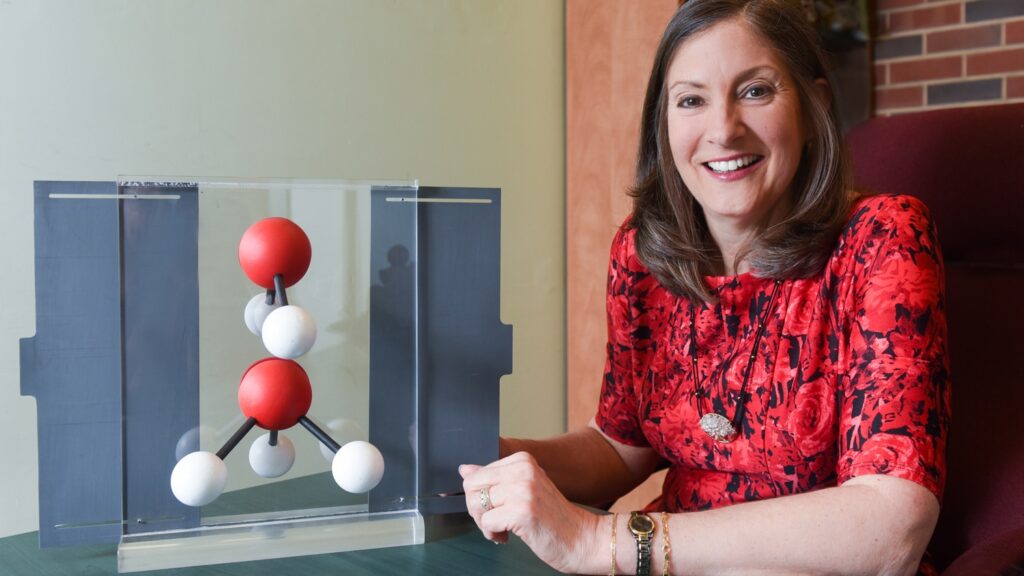
Maria T. Oliver-Hoyo from North Carolina State University is a chemistry professor known for her innovation in making chemistry curricula more accessible, especially for visually impaired students. She has won awards from the National Science Foundation, the College of Physical and Mathematical Sciences, and the State of North Carolina. One of the hallmarks of her research is using manipulatives and 3-D physical models to facilitate conceptual understanding. Her groundbreaking experiments enabling visually impaired students to use their sense of smell, touch, and hearing for the hands-on study of chemical phenomena have been used in national camps for blind students across the United States. She and her students have created hundreds of downloadable chemistry activities as resources for hands-on, activity-based instruction.
In 2019, Oliver-Hoyo was a Fulbright Scholar in Uruguay. She collaborated with colleagues from university systems and high schools in Montevideo to help teachers learn how to apply this activity-based model of instruction. She and her collaborators set up workshops in educational centers throughout the country.
Returning to North Carolina State, she was appointed associate dean for academic affairs in the College of Sciences, and was recognized by the American Chemical Society with their Award for Achievement in Research for the Teaching and Learning in Chemistry. Oliver-Hoyo calls her work with teachers in Uruguay an “extraordinary experience” that continues to bear fruit and produce collaborations to this day.
Provost Warwick Arden, who originally came to the United States as an international graduate student from Australia, noted that North Carolina State’s emphasis on tackling real-world problems on a global scale aligns with the Fulbright mission. “The Fulbright Program’s focus on international collaboration makes it a natural match for NC State’s approach to breaking down barriers, be they disciplinary, geographical or cultural.”
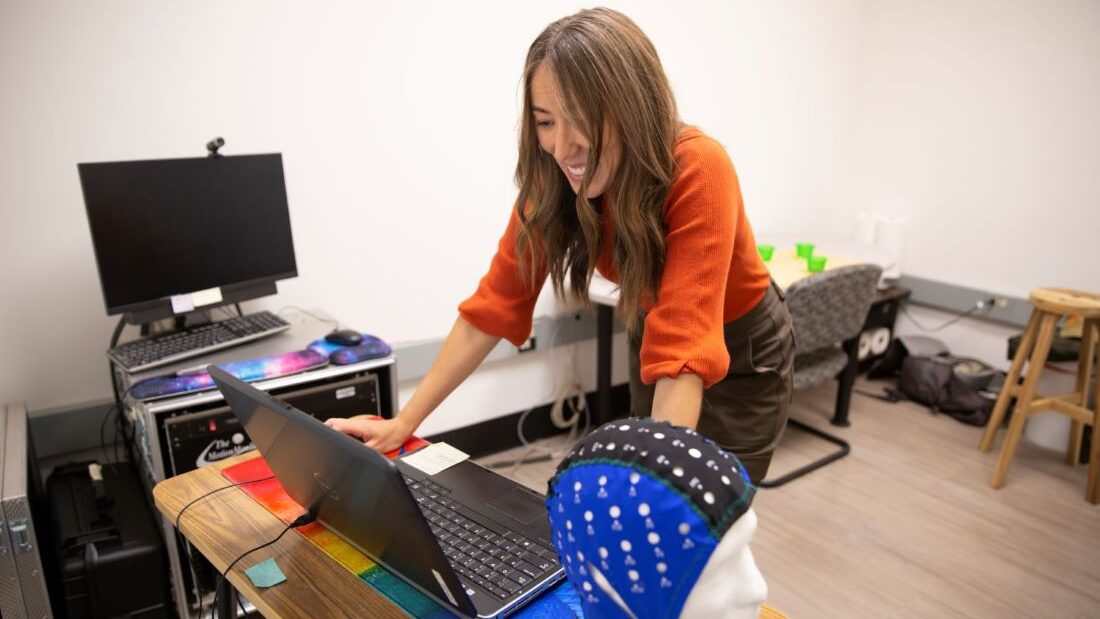
Sydney Schaefer, an associate professor in biomedical and health systems engineering from Arizona State University, was selected as a Fulbright U.S. Scholar to Sweden for the 2023–24 academic year. She has a doctorate in kinesiology with an emphasis in motor control and postdoctoral training in stroke rehabilitation. She has been working to develop new methods for early detection of Alzheimer’s disease. Her Fulbright project involves developing a novel physical function assessment that can be deployed as a first line of defense after earlier disease screening, as a tool to improve neurorehabilitation in older adults.
Arizona State University’s Director of the School of Biological and Health Systems Engineering, Heather Clark, noted that Schaefer’s selection as a Fulbright Scholar signals that her research to predict and track dementia has the potential to have a global impact.
Schaefer will team up with expert colleagues and access Sweden’s acclaimed data registries on clinical data and health outcomes.
“This project perfectly matches my research trajectory with the unique resources at [the institute of Gerontology at] Jönköping University to connect people and nations in the fight against Alzheimer’s disease and related dementias,” Schaefer said.
Joining with a world leader in aging services, infrastructure and research will help her establish long-term international collaborations. Schaefer and her graduate students will learn from the country’s innovative biomedical infrastructure and health care delivery. She would like her students to see the benefit of the Fulbright program as a way to think about their research globally, and plans to encourage them to apply to the Fulbright Program themselves.
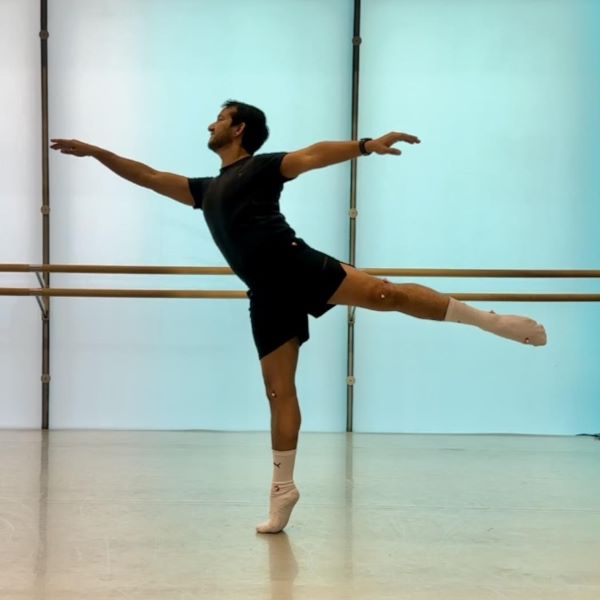
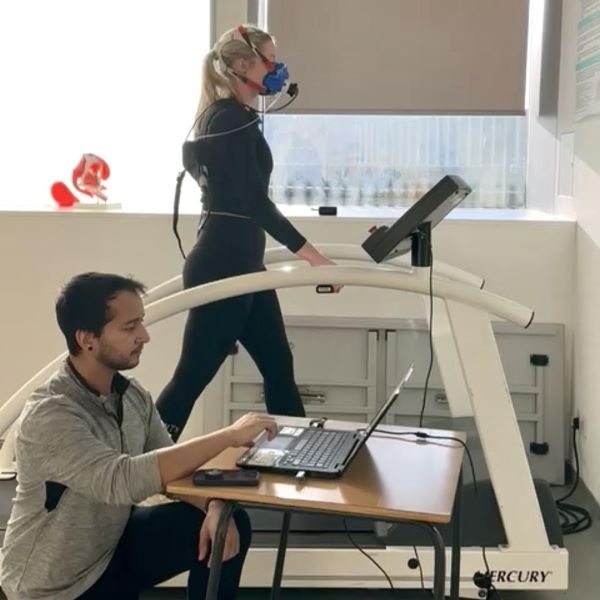
Juan Ventura is a medical student at the University of Texas Medical Branch who received a Fulbright to pursue a master’s in dance science at London’s Trinity Laban Conservatoire of Music and Dance. He is studying the intersection of dance, science, and medicine to inform his future practice as a physician and researcher. His project involves assessing dancers’ experiences and understanding of musculoskeletal injuries, and also providing informative workshops empowering dancers to promote safe practices for career longevity.
Ventura is a first-generation college student and Salvadoran American who started his career as a dance artist, performing and teaching in the Houston area. He has danced with several companies, including Open Dance Project, and performed in a Super Bowl Halftime Show with Lady Gaga. A night job working as a scribe in the emergency department provided what he calls a “sneak peek into healthcare.”
While in medical school, he has conducted research through the Sealy Center on Aging, the NYU Langone Health Clinical and Translational Science Institute, and the MD Anderson Cancer Center. His research has included investigating treatment-related outcomes in cancer patients and risk factors for adverse events in aging Mexican Americans.
He plans to apply to combined pediatric residency programs after his Fulbright. His goals include getting involved in working with performing artists, utilizing dance and movement to improve physical and mental well-being, and working with underserved and underfunded populations.
At University of Texas Medical Branch, Dr. Matthew Dacso serves as the school’s program advisor. In addition to holding the interim chair of global health and emerging diseases at University of Texas Medical Branch, he is a general internist and jazz saxophonist. He says the university values the opportunities that Fulbright provides for students to train in international settings, and shared that he is “proud to have Ventura representing UTMB in London this year.”
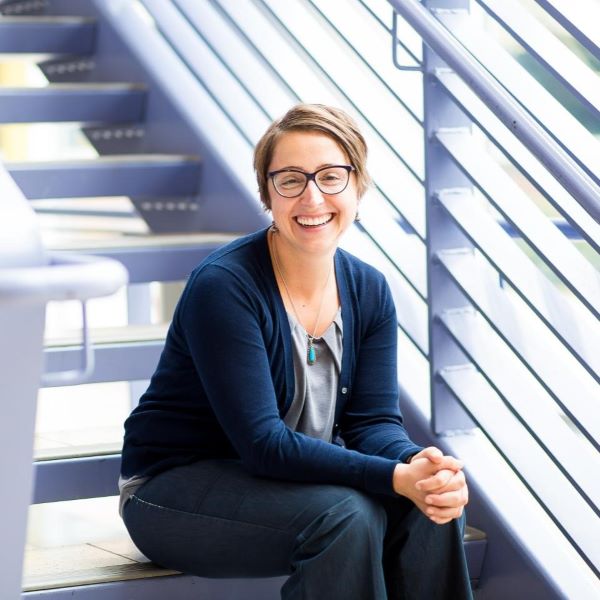
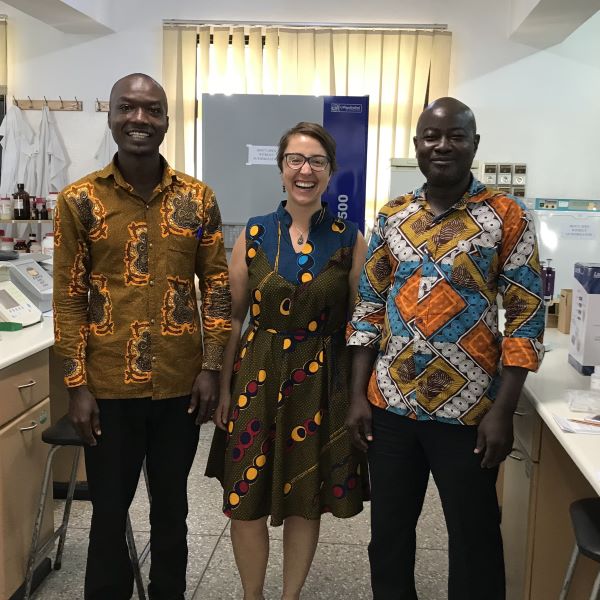
Denita Hadziabdic-Guerry is an associate professor in the entomology and plant pathology department at the University of Tennessee, Knoxville. She is an expert in fungal plant pathogens and forest health. A Fulbright to Ghana allowed her to contribute to contribute to food security efforts in Sub-Saharan Africa by preserving the biodiversity of indigenous plants that are adapted to climate change.
Together with scientists at the University of Ghana, Hadziabdic-Guerry collaborated on research to improve the food supply. They explored whether the frafra potato—a popular home garden crop that is high in calcium, iron, and micronutrients—can be cultivated as a commercial crop. She and her collaborators also held workshops to teach about large-scale production of this nutritious native plant. As a part of her Fulbright community engagement, she also worked to promote science literacy and recruit and educate the next generation of science ambassadors.
Hadziabdic-Guerry explained that she is grateful for her Fulbright experience in Ghana, and called it “transformational in every sense of that word—from professional networking and collaborative research opportunities to personal exploration of Ghana and its wonderful and welcoming people.”
Fulbright also provided opportunities to work with students in both Tennessee and Ghana who were equally committed to eradicating hunger and preserving biodiversity. Hadziabdic-Guerry has continued the frafra potato genetics project with a student from Ghana who came to Knoxville for her doctorate, and she has hosted Foreign Fulbright Students in her lab.
As a Fulbright Scholar Alumni Ambassador back home in the United States, she speaks at conferences and events, and shares best practices for Fulbrighters to establish a mutually beneficial relationship with host countries, host institutions, and U.S. embassies abroad.
